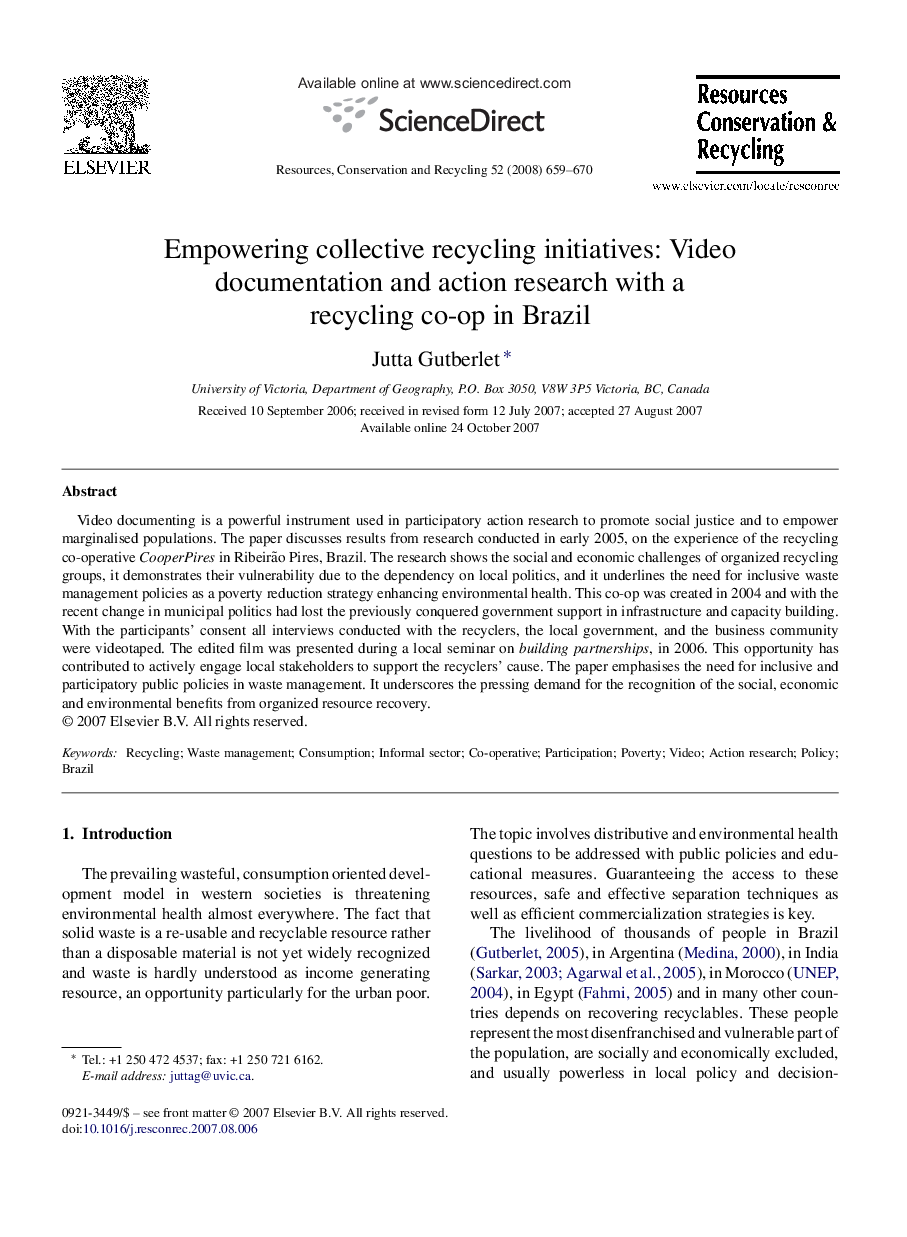| Article ID | Journal | Published Year | Pages | File Type |
|---|---|---|---|---|
| 1063770 | Resources, Conservation and Recycling | 2008 | 12 Pages |
Video documenting is a powerful instrument used in participatory action research to promote social justice and to empower marginalised populations. The paper discusses results from research conducted in early 2005, on the experience of the recycling co-operative CooperPires in Ribeirão Pires, Brazil. The research shows the social and economic challenges of organized recycling groups, it demonstrates their vulnerability due to the dependency on local politics, and it underlines the need for inclusive waste management policies as a poverty reduction strategy enhancing environmental health. This co-op was created in 2004 and with the recent change in municipal politics had lost the previously conquered government support in infrastructure and capacity building. With the participants’ consent all interviews conducted with the recyclers, the local government, and the business community were videotaped. The edited film was presented during a local seminar on building partnerships, in 2006. This opportunity has contributed to actively engage local stakeholders to support the recyclers’ cause. The paper emphasises the need for inclusive and participatory public policies in waste management. It underscores the pressing demand for the recognition of the social, economic and environmental benefits from organized resource recovery.
